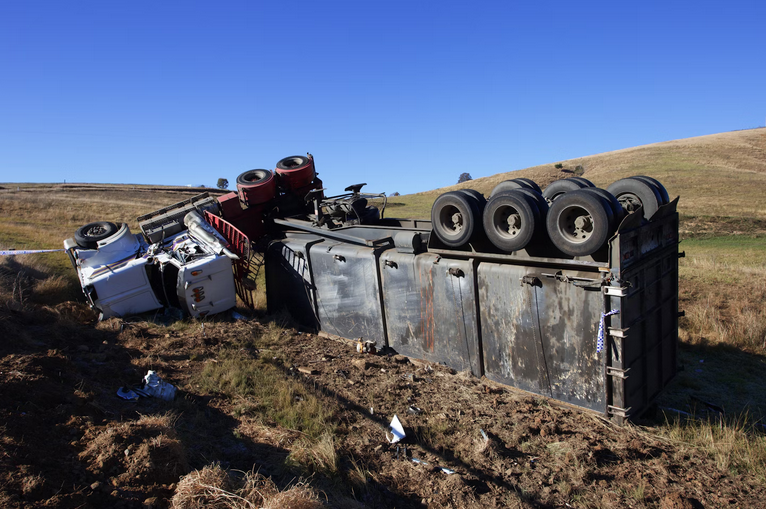When an 18-wheeler is involved in an accident, the aftermath can be devastating. The sheer size and weight of these massive vehicles often lead to catastrophic results. But who is responsible? Determining liability in such cases requires thorough evidence collection. 18-Wheeler Accident Attorney in Houston can make a significant difference in how that evidence is gathered and used.
Each piece of information plays a crucial role in building a case that could affect lives for years to come. From vehicle maintenance records to traffic conditions at the time of the crash, every detail matters. Understanding how these factors intertwine can make all the difference when seeking justice after an accident. Let’s dive into why evidence is vital in navigating 18-wheeler accident cases and ensuring accountability where it belongs.
Establishing Liability
Establishing liability in an 18-wheeler accident is a complex task. It often involves multiple parties, making it essential to pinpoint who is at fault. In many cases, the truck driver may bear responsibility for negligent behavior, such as distracted driving or fatigue. However, trucking companies can also be held accountable if their policies contributed to the incident. An important aspect of this process is examining employment relationships and whether drivers were adhering to company regulations. Were they properly trained? Were they following hours-of-service rules? Witness testimonies can provide critical insights into what transpired during the accident.
Investigating Vehicle Factors
 When it comes to 18-wheeler accidents, the vehicle itself can reveal crucial information. The maintenance history of a truck plays a key role in understanding its performance at the time of an incident. Neglecting regular inspections can lead to catastrophic failures. Tire conditions are critical as well. Worn or improperly inflated tires may compromise traction and handling.
When it comes to 18-wheeler accidents, the vehicle itself can reveal crucial information. The maintenance history of a truck plays a key role in understanding its performance at the time of an incident. Neglecting regular inspections can lead to catastrophic failures. Tire conditions are critical as well. Worn or improperly inflated tires may compromise traction and handling.
Understanding Traffic Conditions
Traffic conditions play a critical role in 18-wheeler accident cases. They can determine how a vehicle behaves and influence the likelihood of an accident. Heavy traffic often leads to congestion, making it difficult for truck drivers to navigate safely. This environment heightens the risk of sudden stops and unexpected maneuvers. Weather can also impact traffic conditions significantly. Rain or snow reduces visibility and road traction, creating hazards for large trucks that require longer stopping distances. Furthermore, the time-of-day matters.
Pinpointing Regulatory Violations

Regulatory violations can significantly impact the outcome of an 18-wheeler accident case. Trucking companies and drivers must adhere to strict federal and state regulations that govern their operations. When these rules are broken, they may face serious repercussions. Common violations include exceeding hours of service limits or failing to conduct proper vehicle inspections. These breaches not only compromise safety but also serve as critical evidence in establishing liability. Investigators often scrutinize maintenance records, driver logs, and training documents during their inquiries. Anomalies in these records can reveal negligence or misconduct.
Evidence plays a crucial role in 18-wheeler accident cases. Establishing liability often hinges on the details gathered from the scene. Did the truck driver follow proper protocols? Was there negligence involved? These questions can only be answered with solid evidence. Understanding all these aspects is key in navigating 18-wheeler accident cases effectively. Properly collected evidence not only supports claims but also helps victims seek justice after devastating incidents on our roads.…



 This can turn your life upside down in a flash. If you’ve sustained significant damage, like fractures or traumatic brain injuries, seeking legal help should be a priority. Medical bills, without realizing it, pile up quickly, and you may face long-term care needs that drain your finances.
This can turn your life upside down in a flash. If you’ve sustained significant damage, like fractures or traumatic brain injuries, seeking legal help should be a priority. Medical bills, without realizing it, pile up quickly, and you may face long-term care needs that drain your finances. Without insurance, the other driver may not have the funds to cover your damages or medical expenses. This situation leaves you in a tricky position regarding how to proceed. Your own insurance policy could come into play here. If you have uninsured motorist coverage, this may help alleviate some of your worries.
Without insurance, the other driver may not have the funds to cover your damages or medical expenses. This situation leaves you in a tricky position regarding how to proceed. Your own insurance policy could come into play here. If you have uninsured motorist coverage, this may help alleviate some of your worries.






 In states that follow comparative fault rules, insurance companies are typically responsible for determining the percentage of fault assigned to each party. It’s essential to understand that their primary goal is to minimize liability and settle claims for as little money as possible. This means they may try to assign a higher percentage of fault to you, resulting in lower compensation. To ensure a fair assessment of fault and proper compensation, it’s essential to seek legal representation when negotiating with insurance companies. A lawyer experienced in car accident claims can help gather evidence and present arguments that support your case for reduced fault.
In states that follow comparative fault rules, insurance companies are typically responsible for determining the percentage of fault assigned to each party. It’s essential to understand that their primary goal is to minimize liability and settle claims for as little money as possible. This means they may try to assign a higher percentage of fault to you, resulting in lower compensation. To ensure a fair assessment of fault and proper compensation, it’s essential to seek legal representation when negotiating with insurance companies. A lawyer experienced in car accident claims can help gather evidence and present arguments that support your case for reduced fault.
 Before you can begin building a strong legal team, it’s essential to identify your specific legal needs. Take the time to assess what areas of law are relevant to your situation or industry. Are you in need of corporate law expertise for business formation and governance? Do you require intellectual property protection or assistance with contracts and negotiations?
Before you can begin building a strong legal team, it’s essential to identify your specific legal needs. Take the time to assess what areas of law are relevant to your situation or industry. Are you in need of corporate law expertise for business formation and governance? Do you require intellectual property protection or assistance with contracts and negotiations? Assessing communication and compatibility is a crucial step in building a strong legal team. Effective communication is essential for smooth collaboration, while compatibility ensures a harmonious work environment. When evaluating potential candidates, pay attention to their communication skills.
Assessing communication and compatibility is a crucial step in building a strong legal team. Effective communication is essential for smooth collaboration, while compatibility ensures a harmonious work environment. When evaluating potential candidates, pay attention to their communication skills.

 In a family law case, both the client and the lawyer play crucial roles in achieving a successful resolution. As a client, it’s essential to be open and honest with your attorney, providing all necessary information and documentation. In turn, your family lawyer will use their expertise to develop a legal strategy tailored to your unique circumstances, represent your interests in negotiations and court proceedings, and guide you through the entire process.
In a family law case, both the client and the lawyer play crucial roles in achieving a successful resolution. As a client, it’s essential to be open and honest with your attorney, providing all necessary information and documentation. In turn, your family lawyer will use their expertise to develop a legal strategy tailored to your unique circumstances, represent your interests in negotiations and court proceedings, and guide you through the entire process.

 Many inventions involve complicated technology and require extensive knowledge to determine whether they are patentable. In these cases, it is essential to consult an experienced patent attorney who can provide the necessary research and analysis to ensure your invention meets the criteria for patentability. At the end of the day, it’s important to remember that patent law is complex and can be challenging to navigate on your own. If you have any questions or concerns about protecting your invention, the best course of action is to seek out a qualified attorney who can provide expert guidance and advice. A good patent attorney will be able to ensure your invention is adequately protected and give you the peace of mind you need. Good luck!…
Many inventions involve complicated technology and require extensive knowledge to determine whether they are patentable. In these cases, it is essential to consult an experienced patent attorney who can provide the necessary research and analysis to ensure your invention meets the criteria for patentability. At the end of the day, it’s important to remember that patent law is complex and can be challenging to navigate on your own. If you have any questions or concerns about protecting your invention, the best course of action is to seek out a qualified attorney who can provide expert guidance and advice. A good patent attorney will be able to ensure your invention is adequately protected and give you the peace of mind you need. Good luck!…

 Communication is key when working with an attorney, so ensure you remain in constant contact throughout your case. Respond to all inquiries promptly and keep your attorney updated on any changes that may arise. Additionally, discuss any deadlines or legal processes you will need to follow, so nothing is overlooked. By following these four tips, you can ensure you get the most out of your attorney. Your attorney is there to help you through a complex legal process and protect your interests, so be open and honest with them, ask questions, stay organized, and communicate effectively. Doing so will give you peace of mind and provide the best possible outcome for your case. Good luck.…
Communication is key when working with an attorney, so ensure you remain in constant contact throughout your case. Respond to all inquiries promptly and keep your attorney updated on any changes that may arise. Additionally, discuss any deadlines or legal processes you will need to follow, so nothing is overlooked. By following these four tips, you can ensure you get the most out of your attorney. Your attorney is there to help you through a complex legal process and protect your interests, so be open and honest with them, ask questions, stay organized, and communicate effectively. Doing so will give you peace of mind and provide the best possible outcome for your case. Good luck.…


 To Prevent Forgetting Details
To Prevent Forgetting Details
 The right lawyer ought to be interested in the case. That is because if your lawyer is not engaged, then he or she might not put enough effort into the case. As a result, the insurance company might not offer you the amount of compensation you need. However, it is not easy to determine whether your lawyer is engaged. An engaged lawyer is likely to answer in-depth questions regarding the accident and what you want to achieve from the case.
The right lawyer ought to be interested in the case. That is because if your lawyer is not engaged, then he or she might not put enough effort into the case. As a result, the insurance company might not offer you the amount of compensation you need. However, it is not easy to determine whether your lawyer is engaged. An engaged lawyer is likely to answer in-depth questions regarding the accident and what you want to achieve from the case. With more 16,000 car accidents per day, claims due to vehicular accidents are the most common cause of personal injury claims. Common cause of car accidents are driving in the influence or distractions like phones. Most of the time, car accidents end up in lawsuits. And it’s not uncommon that finding the real culprit of the accident is difficult to do. This makes hiring an experienced tort attorney the best thing to do.
With more 16,000 car accidents per day, claims due to vehicular accidents are the most common cause of personal injury claims. Common cause of car accidents are driving in the influence or distractions like phones. Most of the time, car accidents end up in lawsuits. And it’s not uncommon that finding the real culprit of the accident is difficult to do. This makes hiring an experienced tort attorney the best thing to do. Assault
Assault







 All the 50 states allow selling of CBD oil online. However, there are specific guidelines that have to follow for the sale of CBD.
All the 50 states allow selling of CBD oil online. However, there are specific guidelines that have to follow for the sale of CBD.
 A lawyer would be your best help in the unfortunate event that you are already facing a lawsuit, and you need to cut the claimed damages by the other parties. You want legal representation to come on board as soon as you get the lawsuit papers since you risk doing things that might complicate your position. Hand over your concerns, documentation, and point of view to the attorneys and let them handle the rest. Keep in touch and work towards affording the payment. Thankfully most firms allow you to pay a deposit and then work towards ensuring that you win the case so that you do not have to pay additional fees.
A lawyer would be your best help in the unfortunate event that you are already facing a lawsuit, and you need to cut the claimed damages by the other parties. You want legal representation to come on board as soon as you get the lawsuit papers since you risk doing things that might complicate your position. Hand over your concerns, documentation, and point of view to the attorneys and let them handle the rest. Keep in touch and work towards affording the payment. Thankfully most firms allow you to pay a deposit and then work towards ensuring that you win the case so that you do not have to pay additional fees.
 The first thing step to ask yourself whether you qualify to file a lawsuit.
The first thing step to ask yourself whether you qualify to file a lawsuit. It is essential to give yourself some time to heal. You need to make sure that you have healed before you start the court process. In case you have been affected by drug injuries, give yourself time to heal.
It is essential to give yourself some time to heal. You need to make sure that you have healed before you start the court process. In case you have been affected by drug injuries, give yourself time to heal.
 This is the basic consideration to look for in a divorce lawyer. You need to check the resume and know the level of qualification that the attorney has in order to gauge expected results. The next big thing is to check whether he has been licensed to offer services to ‘divorce patients.’ A good attorney has both factors.
This is the basic consideration to look for in a divorce lawyer. You need to check the resume and know the level of qualification that the attorney has in order to gauge expected results. The next big thing is to check whether he has been licensed to offer services to ‘divorce patients.’ A good attorney has both factors. A good divorce attorney is well organized and composed always. The attorney is required to be skilled in negotiating and composed while exposing idea about your divorce case. He or she should not be tensed lest he loses the case to the opposing attorney. They are required to be very creative in representing your interest.…
A good divorce attorney is well organized and composed always. The attorney is required to be skilled in negotiating and composed while exposing idea about your divorce case. He or she should not be tensed lest he loses the case to the opposing attorney. They are required to be very creative in representing your interest.…
 When looking for a good DUI attorney, it is good that you come up with a list of the potential attorneys. Once you have done that, the next thing will be to scrutinize each one of them. Try and find as much information about the individual lawyers before you arrive at conclusion. There are several things that you will need to consider as far as this issue concerned. First, you may want to know what those people who used the attorney’s services before think about them. If they were satisfied with the defense that they got from the particular attorney, then you can comfortably and confidently go for their services.
When looking for a good DUI attorney, it is good that you come up with a list of the potential attorneys. Once you have done that, the next thing will be to scrutinize each one of them. Try and find as much information about the individual lawyers before you arrive at conclusion. There are several things that you will need to consider as far as this issue concerned. First, you may want to know what those people who used the attorney’s services before think about them. If they were satisfied with the defense that they got from the particular attorney, then you can comfortably and confidently go for their services. Once you have done all the aforementioned things, the next thing will be to meet the lawyer in persona. Here, you will have face to face consultation with the lawyer. It is here you will get a chance to determine whether they are the right people or you will have to keep searching. A good DUI lawyer should be able to express themselves to you perfectly. In fact, you need to understand that if they cannot express themselves when you are with them, then it will be difficult for them to express themselves in a court of law…
Once you have done all the aforementioned things, the next thing will be to meet the lawyer in persona. Here, you will have face to face consultation with the lawyer. It is here you will get a chance to determine whether they are the right people or you will have to keep searching. A good DUI lawyer should be able to express themselves to you perfectly. In fact, you need to understand that if they cannot express themselves when you are with them, then it will be difficult for them to express themselves in a court of law…
 This is the first step you need to think off when you do not have a clue. Talk to some referrals of the attorney you intend to hire to confirm if he meets your requirements. Ask as many questions to your friends and colleagues.
This is the first step you need to think off when you do not have a clue. Talk to some referrals of the attorney you intend to hire to confirm if he meets your requirements. Ask as many questions to your friends and colleagues. A good car accident attorney should be in touch with his or her client almost all the time. Communication is critical for the attorney to answer the call and reply to emails whenever you contact him or her.
A good car accident attorney should be in touch with his or her client almost all the time. Communication is critical for the attorney to answer the call and reply to emails whenever you contact him or her.













